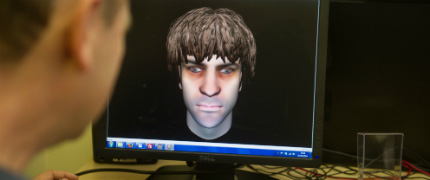A REVOLUTIONARY new therapy in which patients suffering from schizophrenia create an ‘avatar’ of their other self and confront it, has had positive results in reducing the amount of voices the patient hears.
Hallucinations are common in people who are suffering from schizophrenia with many hearing threatening and insulting voices. The trial, run by King’s College London and University College London on 150 people, is published in The Lancet Psychiatry journal.
Avatar therapy was invented by Professor Julian Leff. A smaller study in 2013 piloted by Professor Leff was a great success. In this bigger study, amazingly, seven patients who had had the avatar therapy and two from the counselling group said their hallucinations had completely disappeared after 12 weeks.
In the study, 75 patients who had continued to hear voices for more than a year, were given six sessions of avatar therapy while another 75 received the same amount of counselling. In the avatar sessions, patients created a computer simulation to represent the voice they heard and wanted to control, including how it sounded and how it might look.
The therapist then voiced the avatar while also speaking as themselves in a three-way conversation to help the patient gain the upper hand. Professor Tom Craig, study author from King’s College London, said getting patients to learn to stand up to the avatar was found to be safe, easy to deliver and twice as effective as counselling at reducing how often voices were heard.
‘After 12 weeks there was dramatic improvement compared to the other therapy,’ he said. With a talking head, patients are learning to confront and get replies from it. This shifts the idea that the voice is all-controlling,’ he said.
Patients are encouraged to talk to the avatar and take control of the conversation, saying things such as, ‘I’m not going to listen to you any more.’ Professor Craig said the next step was to find out if the therapy worked in other locations before it could be made widely available on the NHS.
He said the findings were a ‘significant advance’ in treating hallucinations.
Brian Dow, from charity Rethink Mental Illness, said: ‘Hallucinations can be extremely traumatising for patients who experience them and the results of the this trial are promising.’
